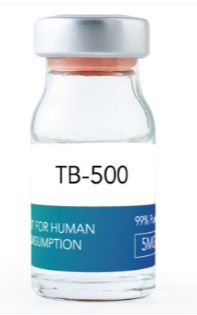How peptides aid in the treatment of cardiac problems and as fat-burning factors
Peptides are short chains of amino acids that play important roles in many biological processes. They have been studied for their potential benefits in a variety of health conditions, including heart disease and weight management. It is crucial to remember that you should only Buy Peptides Online Usa under the supervision of a qualified medical expert. In this article, we will explore how peptides can benefit heart health and act as fat-burning compounds.
Peptides and Heart Health
Heart disease is one of the leading causes of death worldwide, and finding new ways to prevent and treat it is an important area of research. Peptides have been shown to have several beneficial effects on the cardiovascular system.
One of how peptides can benefit heart health is by reducing inflammation. Chronic inflammation is a major contributor to the development of heart disease. Peptides such as angiotensin-converting enzyme (ACE) inhibitors and endothelia receptor antagonists have been shown to reduce inflammation in the blood vessels and heart muscle, thereby reducing the risk of heart disease.
Another way in which peptides can benefit heart health is by improving blood flow. Peptides such as natriuretic peptides and adrenomedullin have been shown to dilate blood vessels and improve blood flow to the heart and other organs. This can help to reduce the workload on the heart and prevent heart damage.
Peptides can also benefit heart health by reducing blood pressure. High blood pressure is a major risk factor for heart disease. Peptides such as ACE inhibitors and natriuretic peptides have been shown to lower blood pressure by relaxing blood vessels and reducing the amount of water and salt in the body.
How AOD9604 2mg can be beneficial in heart disease
AOD9604 is a peptide fragment derived from the human growth hormone. It has been suggested that AOD9604 2mg may have potential therapeutic benefits in treating various diseases, including heart disease. However, there is limited clinical research to support its effectiveness in treating heart disease.
Some preclinical studies have shown that AOD9604 may have beneficial effects on cardiovascular function by reducing inflammation, and oxidative stress, and improving cardiac function in animal models of heart disease. However, these findings have yet to be replicated in human clinical trials.
Therefore, it is important to note that AOD9604 is not currently approved by regulatory agencies such as the FDA for the treatment of heart disease. More research is needed to determine its safety and efficacy in humans before it can be considered a viable treatment option for heart disease.
Finally, peptides can benefit heart health by improving heart function. Peptides such as natriuretic peptides and urocortin have been shown to improve heart function by increasing the force and efficiency of heart muscle contractions. This can help to reduce the risk of heart failure and other heart-related problems.
Peptides and Fat Burning
Peptides have also been studied for their potential benefits in weight management. One way in which peptides can help with weight loss is by acting as fat-burning compounds. Peptides such as growth hormone-releasing peptides (GHRPs) and MT2 10MG (MT-II) have been shown to have fat-burning effects.
GHRPs work by stimulating the release of growth hormone, which in turn stimulates the breakdown of fat cells. This can lead to increased fat-burning and weight loss. MT-II works by increasing the production of melanin in the skin, which can lead to increased fat-burning and weight loss.
Another way in which peptides can help with weight loss is by reducing appetite. Peptides such as ghrelin mimetics and glucagon-like peptide-1 (GLP-1) receptor agonists have been shown to reduce appetite and food intake. This can help to reduce calorie intake and promote weight loss.
You can also buy these peptides :-
How 176–191 Peptide helps in fat-burning compound
176–191 peptide, also known as Fragment 176–191, is a modified version of the growth hormone-releasing factor (GRF) that has been found to have potent fat-burning effects. This peptide is a fragment of the larger human growth hormone (HGH) molecule, which is responsible for promoting growth and development in the body.
The 176–191 peptide works by mimicking the effects of natural HGH, specifically its ability to stimulate lipolysis or the breakdown of stored fat. However, unlike HGH, which can also cause unwanted side effects such as insulin resistance and tissue growth, the 176–191 peptide has been modified to only target fat cells.
Studies have shown that when administered to animals and humans, the 176–191 peptide can promote significant fat loss without affecting muscle mass or causing other adverse effects. It is believed to work by increasing the rate at which fat cells are broken down and released into the bloodstream to be used for energy.
Overall, the 176–191 peptides is considered a promising fat-burning compound, but it should only be used under the supervision of a qualified healthcare professional. Like any medication or supplement, it may carry risks and side effects and may not be suitable for everyone.
Finally, peptides can help with weight loss by increasing metabolism. Peptides such as thyroid hormone analogise and growth hormone secretagogues have been shown to increase metabolism and energy expenditure. This can lead to increased calorie burning and weight loss.
Conclusion
Peptides have many potential benefits for heart health and weight management. They can reduce inflammation, improve blood flow, lower blood pressure, improve heart function, act as fat-burning compounds, reduce appetite, and increase metabolism. While more research is needed to fully understand the benefits of peptides, they show promise as a potential treatment for heart disease and weight management.



Comments
Post a Comment